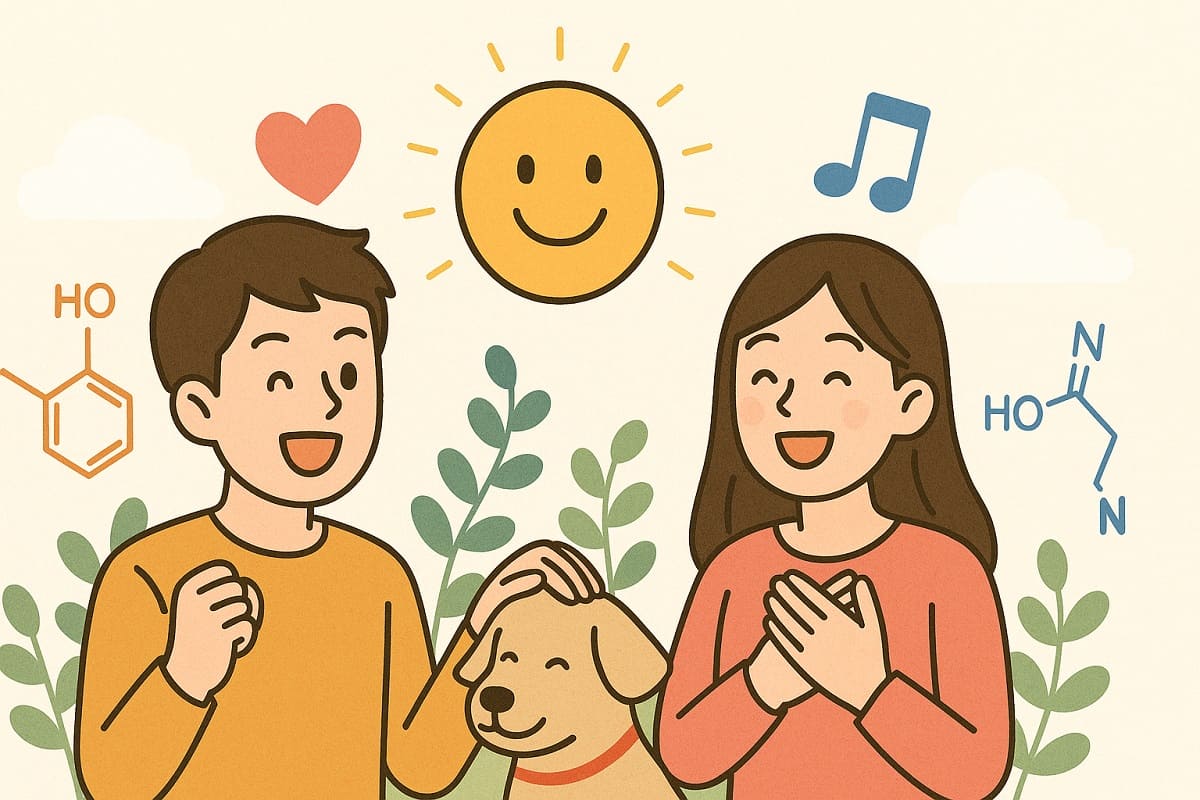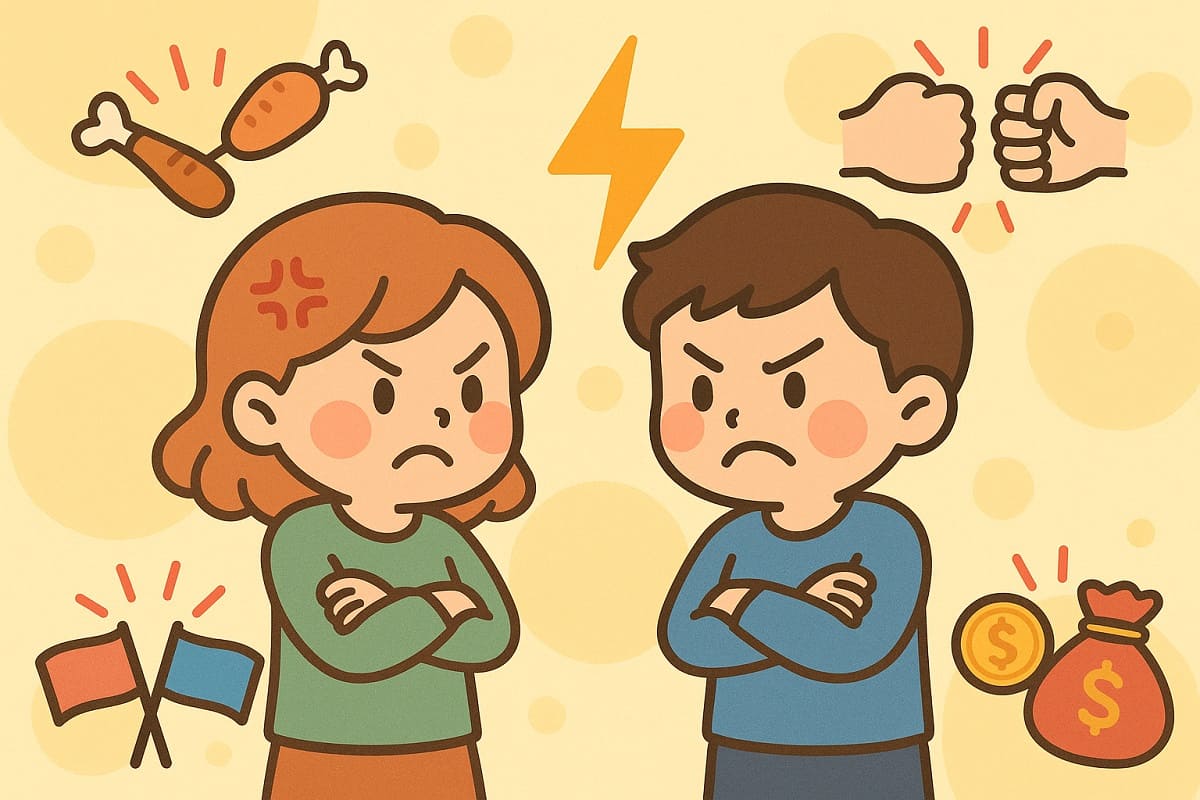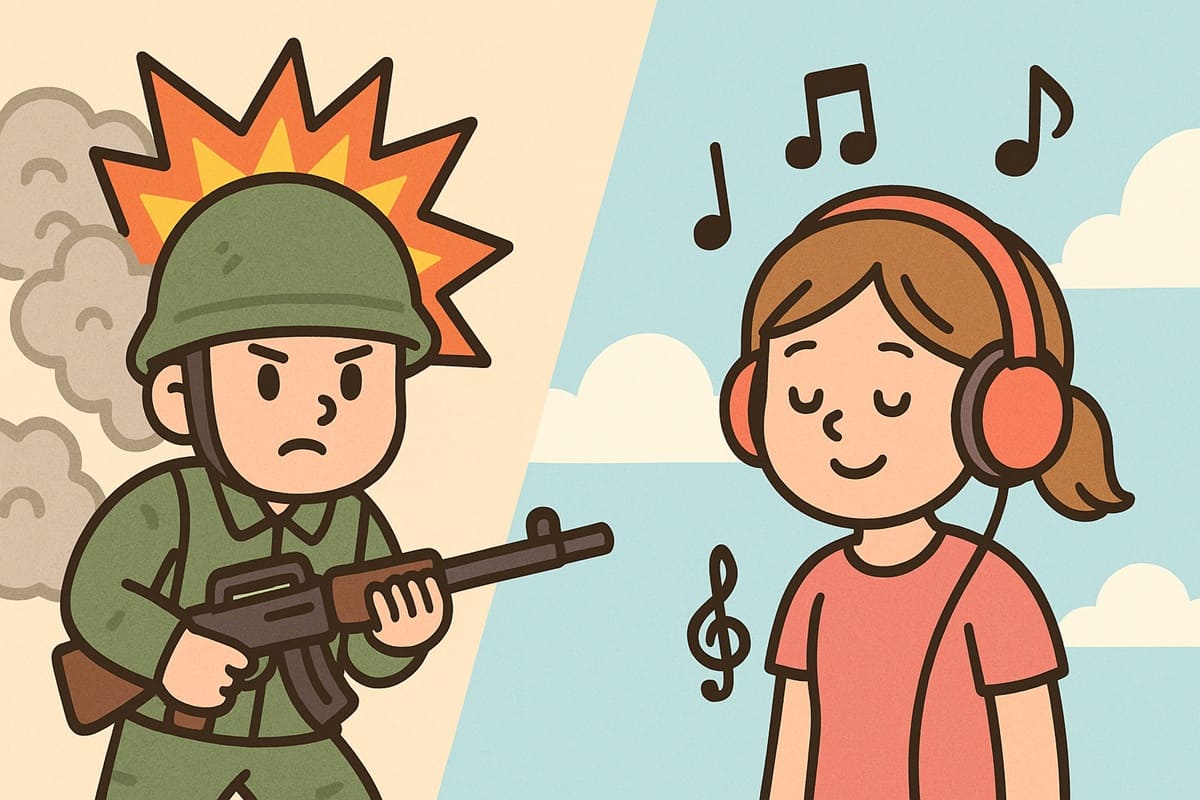How Can We Become Happier? Ways to Boost Your “Happy Hormones”

Do you wish you could live more positively every day?
Are you looking for a way to lift your spirits and feel better?
If so, you’re not alone.
In fact, our mental well-being—our sense of happiness—is deeply connected to certain chemicals in the brain known as “happy hormones.”
In this article, we’ll explore what these happy hormones are and introduce simple, science-backed ways that anyone can boost them starting today.
What Are Happy Hormones?
“Happy hormones” isn’t a scientific term, but it refers to certain hormones and neurotransmitters that bring about feelings of comfort, safety, motivation, and joy in the brain and body.
Here are the four most important ones:
| Hormone | Main Role | Keywords |
|---|---|---|
| Serotonin | Stabilizes mood and increases stress tolerance | Calmness, peace |
| Dopamine | Boosts motivation, achievement, focus | Joy, motivation |
| Oxytocin | Deepens bonds and trust with others | Love, connection |
| Endorphins | Relieve pain and stress, create pleasure | Euphoria, relaxation |
These hormones are naturally released during everyday activities. When their levels are balanced, we are more likely to feel a general sense of happiness and well-being.
What You Can Do to Boost Your Happy Hormones
So, what kind of lifestyle supports the release of happy hormones?
The good news is: you don’t need anything fancy. The secret lies in small, consistent habits.
● Get Morning Sunlight (for Serotonin)
As soon as you wake up, open your curtains and let the sunlight in.
Morning light signals your brain to wake up and helps trigger serotonin production.
Tips:
- Go for a 15–30 minute walk before school or work
- Walk to the station or bus stop instead of driving if possible
● Do Light Exercise (for Serotonin & Endorphins)
Rhythmic movements like walking, stretching, or jogging help stabilize your mood (serotonin) and increase feelings of happiness (endorphins).
Ideas:
- Get off one stop early and walk
- Take a short walk around your neighborhood during lunch break
● Eat More Protein (for Serotonin & Dopamine)
Happy hormones are synthesized from amino acids like tryptophan and tyrosine, which come from food.
Best foods to include in your meals:
- Bananas, eggs, tofu, cheese, nuts, etc.
- Combine with carbs (rice or bread) to aid absorption
● Connect and Laugh with Others (for Oxytocin)
Even small moments of social connection—like chatting, smiling, or physical touch—can boost oxytocin levels.
Try this:
- Laugh with family or friends
- Chat with coworkers or classmates (even online!)
- Spend time with pets
● Feel a Sense of Achievement (for Dopamine)
Accomplishing something, even small tasks, stimulates dopamine. The more you experience success, the more motivated you become.
Examples:
- Students: Finish homework on time, set study goals
- Working adults: Complete your to-do list, finish a report or presentation
● Get Quality Sleep (for All Hormones)
Sleep is directly tied to hormone balance.
A solid 7–8 hours of rest helps your brain and body recharge and boosts happiness the next day.
Sleep tips:
- Turn off your phone before bed and unwind with deep breathing or reading
- Go to bed and wake up at consistent times; get sunlight first thing in the morning
Sample Daily Routine for Boosting Happy Hormones
Being mindful of your happy hormones can help stabilize your mood and cultivate a more positive mindset.
Here’s an example schedule that both students and working adults can try.
| Time of Day | Activity |
|---|---|
| Morning | Get sunlight / Eat a protein-rich breakfast |
| Mid-Morning | Walk to work or school / Greet others with a smile |
| Lunch | Chat with classmates or colleagues / Walk for 10 min |
| Evening | Do something fulfilling (study or work milestone) |
| Night | Listen to music you enjoy / Write in a gratitude journal / Sleep early |
Happiness Is Something You Can Create Yourself
When we think “I want to be happy,” we often look for changes in relationships or our environment.
But in truth, happiness can be nurtured from within, through your brain and body.
Soak up the sun, move your body, laugh with others, and enjoy small achievements—
It’s these everyday actions that naturally increase your happy hormones.
Why not start with just one of these habits today?
Main References
- Boecker, H., et al. (2008). The runner’s high: Opioidergic mechanisms in the human brain. Cerebral Cortex, 18(11), 2523–2531.
- Carter, C. S. (2014). Oxytocin pathways and the evolution of human behavior. Annual Review of Psychology, 65, 17–39.
- Heller, A. S., & Casey, B. J. (2016). The neurodynamics of emotion: Delineating typical and atypical emotional processes during adolescence. Developmental Science, 19(1), 3–18.
- Wang, D., et al. (2021). Daylight exposure modulates circadian rhythms and increases serotonin levels in humans. Chronobiology International, 38(4), 566–574.
- Wheatley, T., & Haidt, J. (2005). The positive emotion of elevation. Emotion, 5(3), 221–230.












